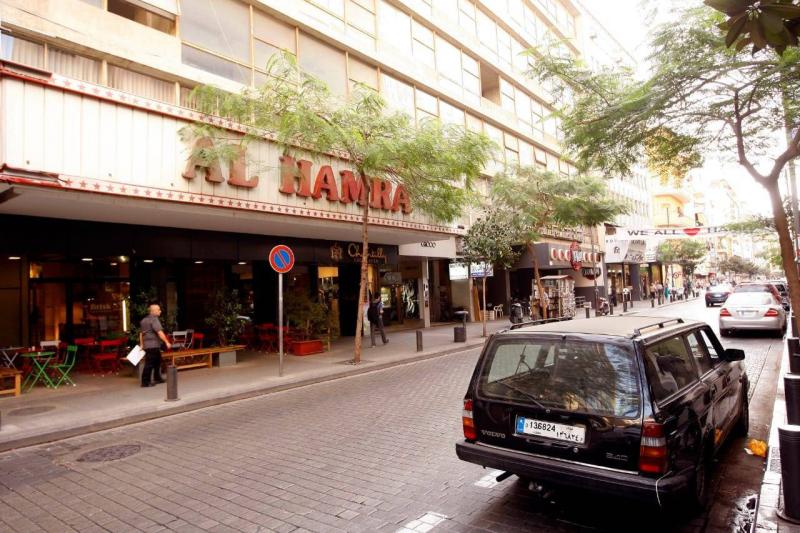The economic crisis has cast its shadow over all vital and cultural sectors in the country, including the film industry, which continues to struggle for survival. Beirut, described by the Arab poet Nizar Qabbani as the most beautiful city, is losing its theaters and cinemas due to a lack of funding and absence of support. This prompted us to ask the following question: What price must Lebanese cinema pay to stay alive?
**The Bitter Reality of Cinema**
The film sector in Lebanon has endured two devastating blows in recent years. The first blow came with the spread of the coronavirus, leading to the closure of entertainment venues (such as gyms, nightclubs, and cinemas) by the committee monitoring preventive measures to avoid crowded places and gatherings, maintaining social distancing.
The second blow came with the deterioration of economic conditions and the collapse of the national currency against the US dollar, which led to a decline in activity and a lack of ticket sales.
The president of the cinematographers' union, Sobhi Saif El-Din, expressed his thoughts on the difficult state of cinemas, noting they are "almost empty of visitors, after previously being crowded with a thousand seats." He stated, "From a thousand seats to a hundred in a single theater, with a maximum attendance of 50."
Instead of films recovering their costs from the first week like in Egypt, "we rejoice at having half the visitors in the theater, if that happens."
**Is Cinema Only for the Rich Now? Where Do the Poor Fit In?**
Saif El-Din believes that due to the country experiencing tough security and financial conditions, the poor can no longer afford to frequent cinemas, as their main concern is their daily survival. He laments, "From 1500 L.L. for a bread bundle, a Lebanese citizen wakes up to find its price exceeding 45,000 L.L. So which cinema are we discussing amidst these crises? Even if he can secure his food and drink, can he drive his car with gasoline prices at 2 million L.L.?"
He adds regretfully, "I am a cinema enthusiast but cannot visit. My first and last concern, like all citizens, is providing food, drink, and medicine for my family. Expenses are piling up amid dollarized prices and declining salaries."
**No Immediate Solutions Except Dollarization**
Saif El-Din continues his conversation with us, stating: "To preserve the sector, we sought to save it through dollarization, but the laws only allow us to deal in our national currency, even though the government deals in dollars and encourages people to purchase their goods at black market prices."
When asked if there is a solution to revive cinema in Lebanon, the president pointed out that "the union consists of about 1400 members, including directors, photographers, sound engineers... Some have migrated and achieved huge profits worldwide, while others can't even renew their membership card and pay 350,000 L.L. monthly" (around $3 at today's black market exchange rate).
He believes that the optimal solution for all sectors is "for the state to reclaim its role... to act with conscience towards our country, Lebanon... and to work on improving economic, living, and security conditions."
**Digital Platforms Threaten the Throne of Cinema**
"Cinema today has become just a business," Saif El-Din described the situation, noting that "not everyone who graduated from a Lebanese institute becomes a film director, nor does everyone who takes pictures with their phone and edits them create a film."
He concludes by pointing out that digital platforms have contributed to weakening the cinema industry, becoming a substitute, especially since they save time and money.
Lebanese cinema was in great shape during the civil war. Looking back to the golden era of Lebanon, Beirut had around 45 cinemas, the most famous being in Hamra Street, such as Eldorado, Saroula, Hamra Cinema, and Piccadilly, when these cinemas were popular destinations for Arab and foreign tourists. The cafes of Hamra Street, or "Café Trottoir," were gathering places for thinkers, writers, poets, and artists. While Cairo was the capital of Arab film production, Beirut was then the capital of theaters in the Arab world.
According to UNESCO figures, the individual cinema attendance rate was 22.5 times in 1960, with only Hong Kong recording a higher rate that year.
Today, these cinemas no longer exist; some have been replaced by commercial shops, while others remain closed, waiting for someone to restore them. Only a few signs remain, reminding Lebanese of the days they long for, which once created a beautiful era.




